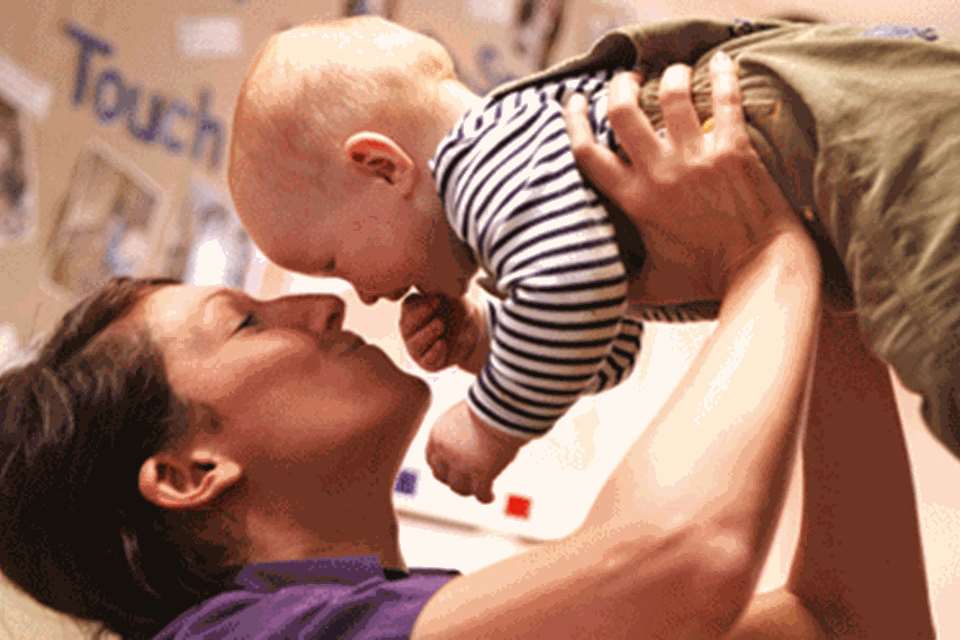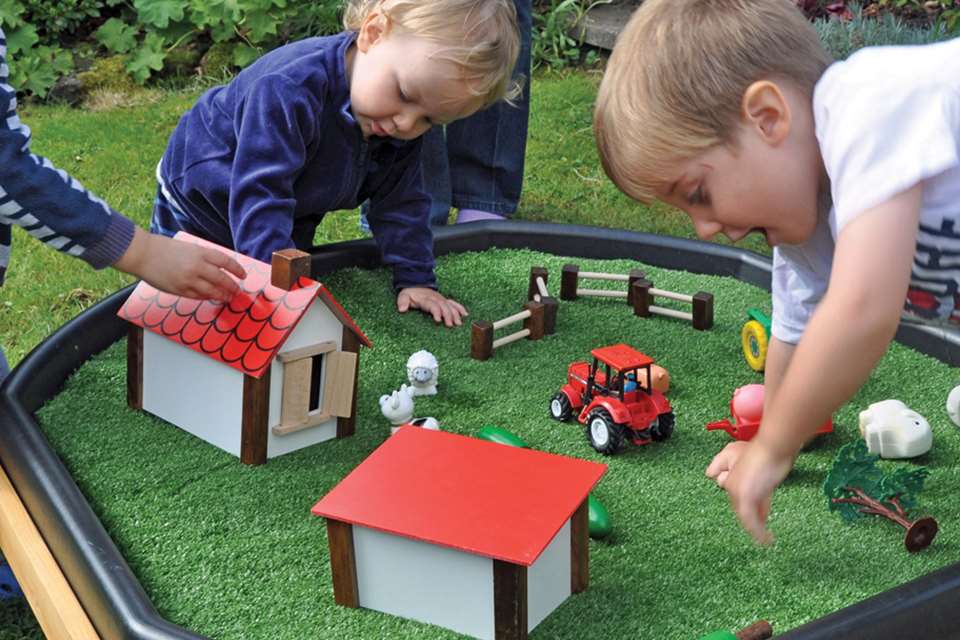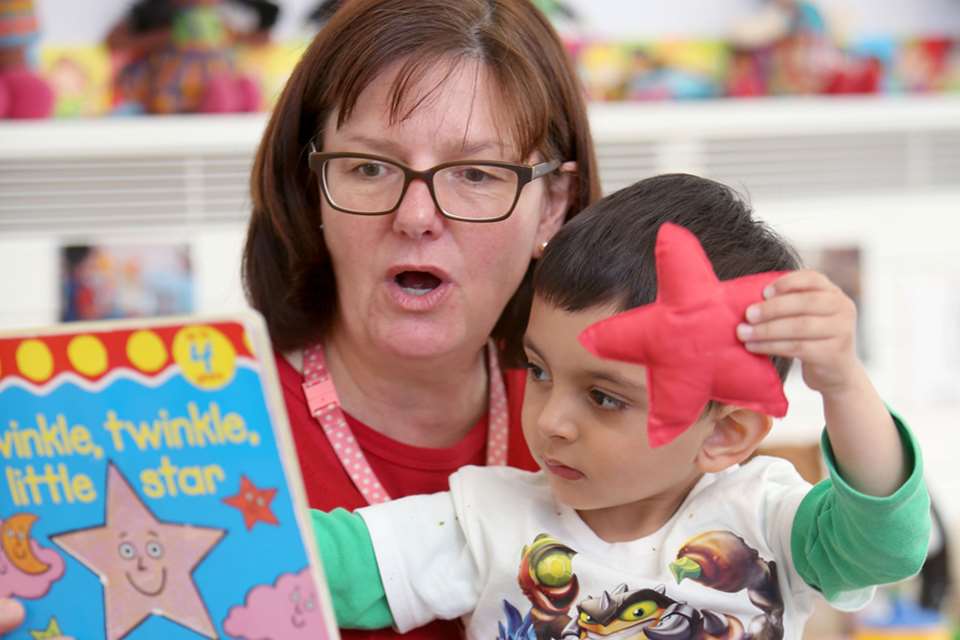Learning & Development: Communication & Language - Word for word
Ruth Thomson
Monday, July 27, 2015
How well children learn words is influenced by many things, including the environment and the manner in which adults speak to them. Communication experts Dr Rebecca Frost, Dr Katherine Twomey, Dr Gemma Taylor, Professor Gert Westermann and Professor Padraic Monaghan explain.

Early years practitioners are well aware that a language-rich environment helps children through the early stages of language development, from identifying words in speech to using them in sentences. But here, we look more closely at how children learn words, particularly names for objects, and how they use their environment to guide this process.
Helping children to learn words at an early age is incredibly important, because the number of words that a toddler knows predicts how well they will learn to read when they get to school1. However, word learning is enormously complicated, and there are two primary reasons for this.
First, children need to understand that some of the sounds that grown-ups make actually relate to things around them. For example, when we hear a lion roaring, we tend not to assume that the lion is telling us anything - what it had for dinner, for example. But children have to figure out that human speech is completely different from other sounds they hear, because it carries meaning.
The second reason that word learning is hard is because children have to link new words to their meaning, and there are many ways these links could be made. When someone says, 'Look, a rabbit' as a rabbit runs past, children cannot know for certain how this phrase relates to what they see - it could be to the rabbit itself, but it could also be the rabbit's fur, the running motion, the beauty of the scene, or other aspects of the environment.
Fortunately, though, young children are extremely sophisticated word learners. By age two, children have started to learn the meaning of a word after hearing it only a few times2. Children can even learn meanings without being explicitly told them, if they already know the names of other objects that are around at the same time3.
So, what is known about how children learn the meanings of words, and how can we help children to learn more effectively?
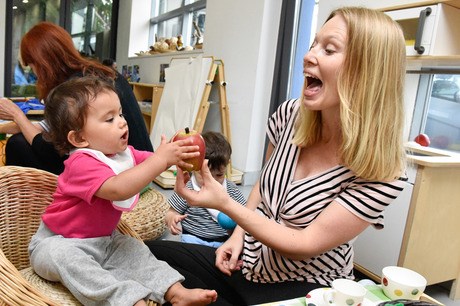
WHAT INFLUENCES WORD LEARNING?
You may not be surprised to hear that attention plays an important role in word learning. Explicitly labelling an object while drawing children's attention to it helps them to learn and retain names for objects that they haven't seen before4.
Using words and objects together is thought to be particularly helpful for early language development, from around six to 18 months5. At this very early stage of language development, engaging children's interest, showing them objects and letting them explore objects for themselves are all great ways of helping them to get started in language learning6.
As children get older and begin exploring for themselves, it becomes increasingly challenging for us to talk about what they are looking at when they are looking at it. Fortunately, toddlers are very good at learning words by using whatever information is available.
For example, children can learn words for objects that have been moved out of view7, such as toys in a toy box. They are also keen listeners - research has shown that children can learn words for new objects from conversations between adults, without actually being part of the conversation themselves8.
Because children need to learn to link words with objects, it makes sense that language learning is boosted when the pairings between words and objects are more apparent. If we take the example of the rabbit given earlier, children can't be sure what a rabbit is after just one instance of hearing the word. But if every time they hear 'rabbit' they also see a rabbit, then they can increase their confidence about the word's meaning. Learning is not quite so effective if there are lots of other objects around too - it is easier for children to link a word to an object if there are only a few objects for them to look at9.
Research has shown that gesturing while speaking10 and promoting children's pointing and gaze-following could all be helpful for language learning11. Emphasising the key word that we want children to learn seems to improve learning too12.
So, what else can we do to help children learn word meanings?
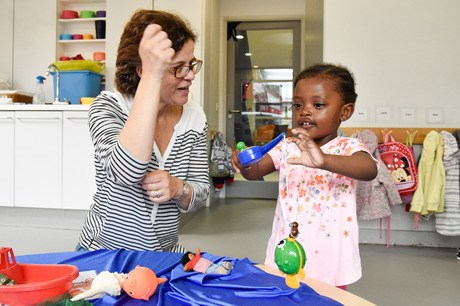
HOW CAN WE HELP CHILDREN'S WORD LEARNING?
What children hear
There are lots of ways that we can help children's language learning, starting with how we communicate with them, and how often we do so.
Most adults speak to children in a different way than they speak to other adults. Drawn-out words, spoken at a higher pitch and with exaggerated pronunciation are the hallmarks of child-directed speech. But is talking to young children in this way helpful for word learning? The evidence seems to say it is.
Child-directed speech captures infants' attention more than adult-directed speech. At two days old, infants are already showing a preference for hearing child-directed over adult-directed speech13. The more distinct speech sounds used in child-directed speech seem to help infants to pick up the different sounds that make up words14, and research has shown that infants can learn words better from this type of speech15.
It is not just the way we speak to children that affects their learning. Research has shown that children who receive a large amount of language exposure are able to learn more words than those who only receive a limited amount, and they can acquire words more quickly than their less experienced peers16.
Although talking to children often will help word learning, it isn't quite enough to just use a large quantity of words - the quality of speech that children hear is important too. Word learning can be boosted by exposing children to a large and varied vocabulary that includes words that we as adults might use less frequently16.
Interestingly, research has shown that children benefit more from hearing full grammatically correct sentences17, rather than simpler phrases or single words. Using full sentences helps children know which are the key words, and helps them understand what these words refer to18.
Repetition is also advantageous for word learning. This is good news, as children love hearing the same story or joke repeated over and over again - even if adults sometimes find it rather tedious. We use far more repetition when talking to children than we do with adults, and at birth, infants can already identify repetitions of words19. Research has shown that repetition can help toddlers learn names for new objects20, even when the names are words they have never heard before.
Repeated reading of storybooks is helpful for learning, as it means that children can predict the language patterns in the stories, which helps them to pull out new information.
A recent study showed that children who heard the same storybook multiple times were much better at recalling the new words that the story contained a week later than their peers who heard several different stories21. However, when storybooks contain lots of features such as pull-tabs and pop-ups, children are less able to generalise the new words to other examples of the same thing22.
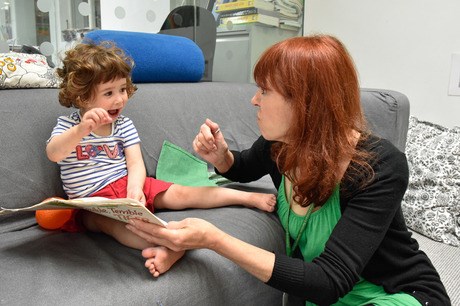
What children see
There are lots of other ways we can support word learning that focus on what children see, as well as what they hear. In particular, letting children compare objects helps them learn which features of those objects are important23.
For example, a cup at nursery could be made from yellow plastic, a cup at home could be made from red metal, and a cup at Grandma's could be made from blue china. However, all of them are a similar shape, and all are used for drinking. By comparing the different examples, children learn that to work out whether something is a cup, they must look at its shape and what it does, but can ignore its colour and what it is made from24.
Showing children lots of examples in this way makes it easier for them to learn the word for that category of objects25.
A recent study even showed that giving 18-month-olds extra experience with categories of objects and their names not only helped them learn a particular category name, but substantially hastened their general vocabulary development26.
We can also help children learn by thinking about the context in which they see an object and hear a new word. For example, it is more difficult for children to work out which object a new word refers to if there are lots of new objects, rather than just a few. Although letting children compare things helps them learn words, studies show that too much comparison makes learning more difficult9.
We also know that children can work out what a new word refers to by ruling out things they already know the names for27.
So, keeping playtime relatively simple, for example playing with one new and two familiar toys rather than two new and six familiar toys, can make it easier for children to learn new words.
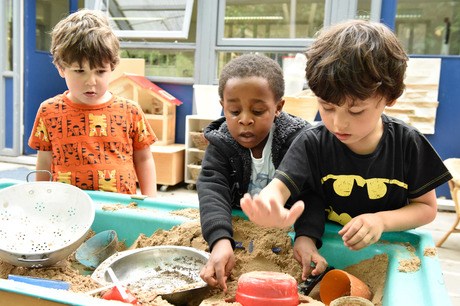
SUMMARY
Children are experts when it comes to word learning. They can learn from all sorts of information around them, even when there isn't much there to draw on.
Nevertheless, what children see and what they hear are both critically important for language development, and this is something we should always keep in mind when communicating with them.
TIPS FOR LANGUAGE LEARNING
Here are some suggestions, based on the research described in this article, that may help along children's word learning:
- Talk to children often, and use a large and varied vocabulary.
- Encourage interactive communication.
- Read storybooks - this is a great way to provide children with much-needed language exposure. Re-reading them will help children to pull out new information.
- Use words and objects together.
- Give children practice at pointing at things they and you are talking about.
- Guide children in following the direction of your gaze.
- Interact with children while they watch television to support their learning.
- Keep playtime relatively simple by playing with a smaller mix of new and familiar toys.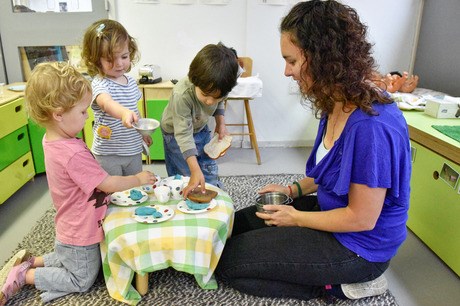
WHAT ABOUT MEDIA INPUT?
We know that the amount of language children are exposed to is important, but do media sources such as television count as helpful language input? Studies have shown mixed results, reporting negative, neutral and positive links between television exposure and language development.
When learning from television, children must transfer what they learn to the real world28. As a result, something researchers refer to as 'scaffolding' is required to enable children to learn language from television. When parents interact with children about the relationship between objects on the television screen and real-world objects, children can learn language from television29. When viewed passively, however, television may not be a beneficial source of language input.
1. Duff, FJ, Reen, G, Plunkett, K, & Nation, K (2015).2. Childers, JB & Tomasello, M (2002).
3. Markman, EM, Wasow, JL, & Hansen, MB (2003).
4. Axelsson, EL, Churchley, K, & Horst, JS (2012).
5. Althaus, N, & Plunkett, K (2015).
6. Smith, LB, Yu, C, & Pereira, AF (2011).
7. Samuelson, LK, Smith, LB, Perry, LK, & Spencer, JP (2011).
8. Akhtar, N (2005).
9. Horst, JS, Scott, EJ & Pollard, JA (2010).
10. Goodwyn, SW, Acredolo, LP, & Brown, CA (2000).
11. 1 Brooks, R & Meltzoff, AN (2008).
12. Fernald, A & Mazzie, C (1991).
13. Cooper, RP & Aslin, RN (1990).
14. Liu, HM, Kuhl, PK, & Tsao, FM (2003).
15. Thiessen, ED, Hill, EA & Saffran, JR (2005).
16. Hart, B & Risley, T (1995).
17. Hoff, E & Naigles, L (2002).
18. Monaghan, P & Mattock, K (2012).
19. Gervain, J, Berent, I & Werker, JF (2012).
20. Mather, E & Plunkett, K (2009).
21. Horst, JS, Parsons, KL & Bryan, NM (2011).
22. Tare, M, Chiong, C, Ganea, P & DeLoache, J (2010).
23. Oakes, LM, Kovack-Lesh, KA, & Horst, JS (2009).
24. Smith, LB, Jones, SS, Landau, B, Gershkoff-Stowe, L, & Samuelson, L
(2002).
]]




